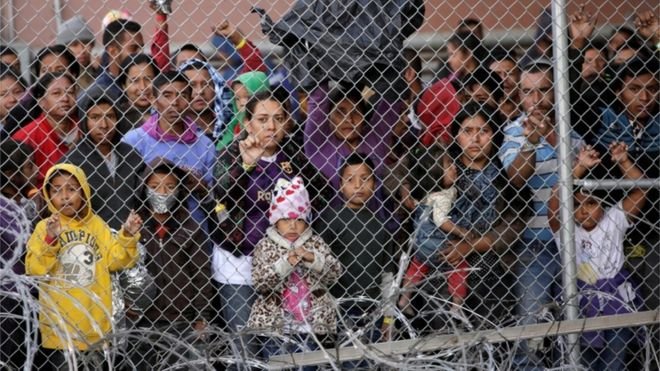a concerning development, federal officials report encountering nearly 10,000 migrants daily at the U.S. southern border, marking one of the highest numbers ever recorded. The surge has prompted warnings from U.S. officials that the situation is nearing a breaking point. As multiple border entry points remain closed, the crisis intensifies, raising urgent calls for bipartisan solutions to address the complex challenges at the border.
Record Numbers and Breaking Point Warnings
The average number of daily migrant apprehensions at the southern U.S. border has surged to approximately 9,600, a level not seen since earlier in the year. This alarming statistic has raised concerns among officials, with warnings that the situation is reaching a breaking point. Republican Congressman Tony Gonzales describes the situation as spiraling out of control, emphasizing the overwhelming pressure faced by Border Patrol agents.
Strain on Resources and Escalating Crisis
Key areas along the Rio Grande, such as Del Rio, Texas, continue to be focal points of the southern migration crisis. Despite extensive security measures, including razor wire, steel containers, and a significant presence of federal, state, and local authorities, thousands of migrants continue to cross the border at these locations. The strain on resources is evident in the staggering delays and long lines at ports of entry, impacting both the immigration process facilities and border resources.
Sheriff Tom Sperber acknowledges the challenges posed by the broken asylum system, emphasizing the need for a comprehensive solution. While expressing the view that a zero-tolerance immigration policy won’t effectively deter illegal crossings, Sheriff Sperber calls for collaboration with the Mexican government to implement a patrol system and address immigration structurally.

Political Fallout and Public Outcry
The escalating crisis at the southern border is taking a toll on the Biden administration and Democrats, with the issue becoming a focal point for political criticism. The public outcry includes testimonies from Chicago residents expressing frustration over the impact of illegal immigration on their communities. Pastor Cory Brooks, CEO of Project Hood, highlights the broader implications of sanctuary city policies, diverting funds away from pressing domestic issues.
As voices rise against the Biden administration’s handling of the crisis, there is growing concern that this could have political consequences, particularly in the upcoming elections. The dissatisfaction is not limited to a specific demographic, as evident in the testimonies from diverse voices, emphasizing the need for immediate and effective solutions.
Bipartisan Cooperation Urgently Needed
President Joe Biden acknowledges the need for significant compromises to address the broken border situation. The president proposes a comprehensive immigration reform, signaling a willingness to work across party lines to find a solution. However, the challenge lies in achieving bipartisan cooperation, as both sides navigate longstanding differences on immigration policies.
Democratic strategist Maria Cardona advocates for a balanced approach, emphasizing the importance of expanding legal pathways while increasing border security measures. She criticizes Republicans for what she perceives as negotiating in bad faith and calls for genuine efforts to fix the immigration system.
Former Republican Congressman Charlie Dent acknowledges the broken asylum system as a significant challenge and calls for a more realistic approach to negotiations. He suggests moving away from extreme rhetoric and focusing on increased security measures, additional immigration judges, and technological advancements.
President’s Compromises and Seeking Common Ground
President Biden’s willingness to make compromises is evident, with an emphasis on addressing the root causes of migration and implementing comprehensive reforms. The challenge now is finding common ground between Democrats and Republicans to enact meaningful and sustainable changes.
As negotiations continue, it becomes essential to overcome the political posturing and focus on solutions that prioritize border security, address the broken asylum system, and foster bipartisan cooperation. The urgency of the situation necessitates a collaborative effort to prevent further escalation of the crisis and ensure the well-being of both border communities and arriving migrants.
